Chinese 'democracy tourists' see Iowa up close
- Published
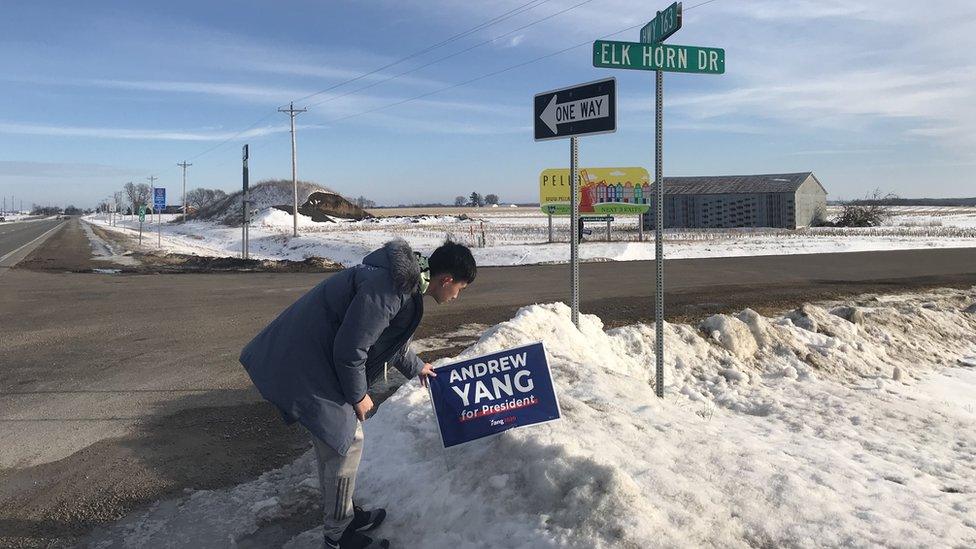
A Chinese student puts up a yard sign of presidential candidate Andrew Yang in Des Moines, Iowa.
To some Americans, Iowa, a rural state in the middle of the US, is dismissively thought of as "fly-over country".
Yet the Hawkeye state is well-known in China. Chinese President Xi Jinping has visited twice - before he took office in 2012, and in an earlier stay as a low-level local official on a 1985 trip to study farming technology.
Iowa was once again a destination for Chinese visitors last week, though those who descended upon the state were not there to study soybeans, but democracy in America.
Amid its chaos, young "democracy tourists" learnt first-hand that it can be a messy way to govern.
The results of Iowa's caucuses were delayed for days because of a technical failure, causing political uproar in the US.
But the Chinese students didn't seem to mind.
Over the weekend leading up to the 3 February contest - the first step in selecting the candidates who will stand in the November presidential election - they could be spotted at a rally for Andrew Yang, a Democratic hopeful.
The students, aged about 16, were part of a winter break tour of the US that included stops in Iowa to see democracy in action.
The trip cost $7,000 (£5,428) - a huge sum for the average Chinese household - but Liu Junhao, 16, thought it had been money well spent.
He'd experienced something unique and meaningful, unlike his classmates' visits to typical American tourist attractions, he said.
"If I could vote, I would vote for Andrew Yang," he said. Mr Liu could only hear half of the candidate's speech, but stared at him awe, star-struck, for the whole event.
Some 360,000 Chinese students now study in the US. In the UK, the figure is more than 100,000. As Chinese people become more affluent and international education more accessible to them, an increasing number of young Chinese want to study in the West.
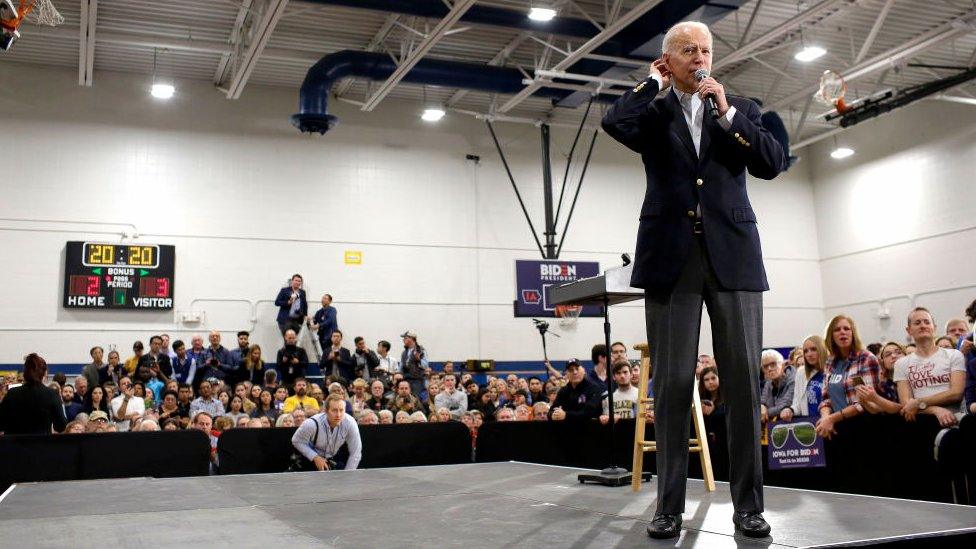
Chinese students attend multiple campaign rallies in Iowa, including former Vice-President Joe Biden's event
Understanding democracy has now become part of that education.
Steven Hu, a Hubei native who attends high school in Boston, has canvassed for six months for Joe Biden, working for his campaign in Iowa and New Hampshire, the first two states to vote in the primaries.
Mr Hu, 17, had ambitions beyond promoting democracy, though.
He arrived at a Biden rally in Des Moines armed with a university recommendation letter- and hopes that the former vice-president would sign it for him.
"Steven has been very proactive in making a positive impact on my campaign," said the letter, written by the student for Mr Biden to sign.
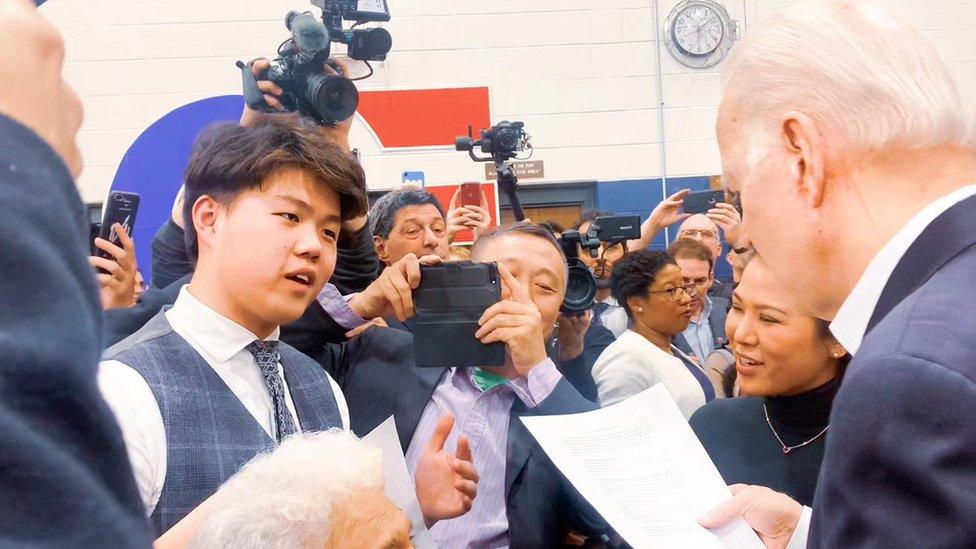
Chinese student Steven Hu meets presidential hopeful Joe Biden
Dressed up in a three-piece suit, the college hopeful stood waiting next to the aisle, poised to pounce when Mr Biden was to pass through after his speech.
The moment came. The silver-haired politician approached. Mr Hu seized the chance to tell Mr Biden about his canvassing work, and asked him to sign the letter.
"Thank you," Mr Biden responded. Though he appeared to be puzzled by the paper presented to him, he signed it after taking a glimpse.
However, before Mr Hu could get the letter back, a Biden aide seized it and explained the candidate was in no position to sign such a document.
A disappointed Mr Hu took it in his stride. "I didn't expect such a letter would be accepted by colleges anyway," he said.
He said he just wanted proof that he had participated in the campaign.
Mr Hu viewed politics as a game that everyone in the US plays - a game with high participation but low efficiency, given America's partisan gridlock.
But he still appreciates it. "The US is a great country," he said, "because it successfully created a system that lets everyone be a part of it."

Who will take on Trump in November?


- Published7 February 2020
- Published5 March 2020
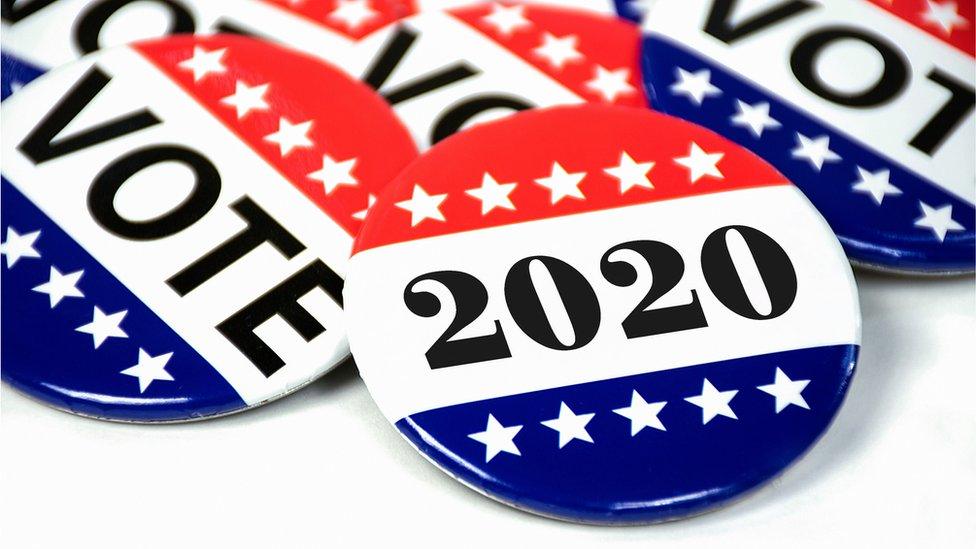
- Published7 February 2020
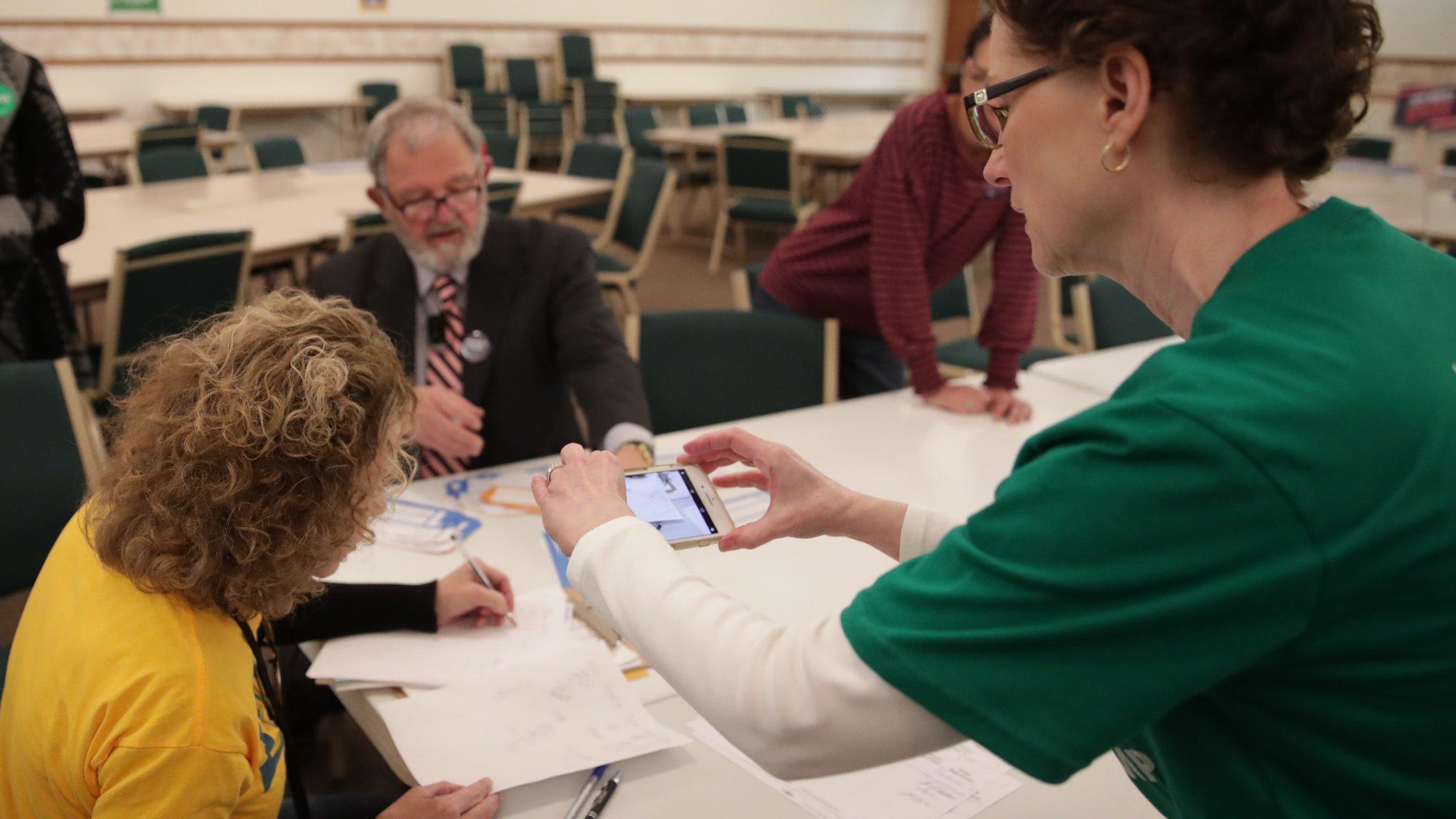
- Published5 March 2020
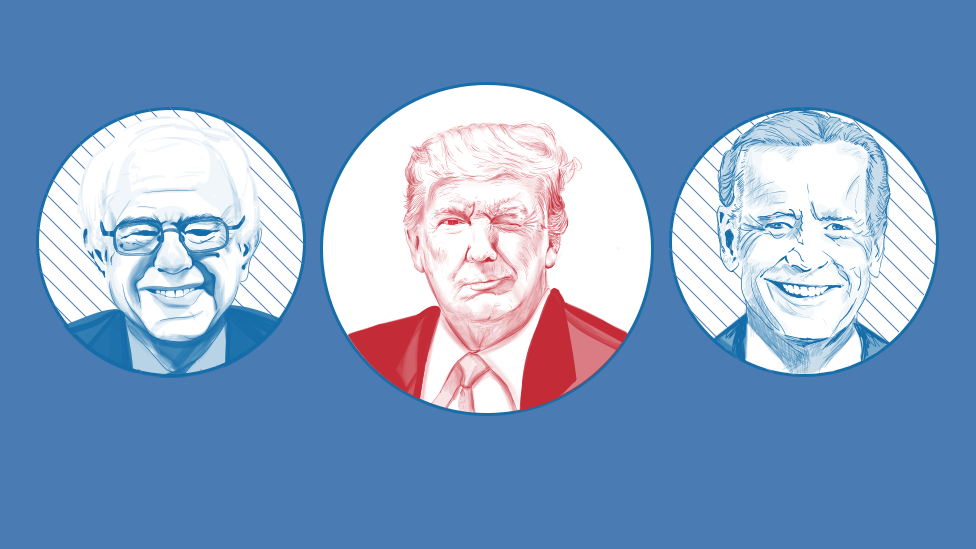
- Published6 February 2020
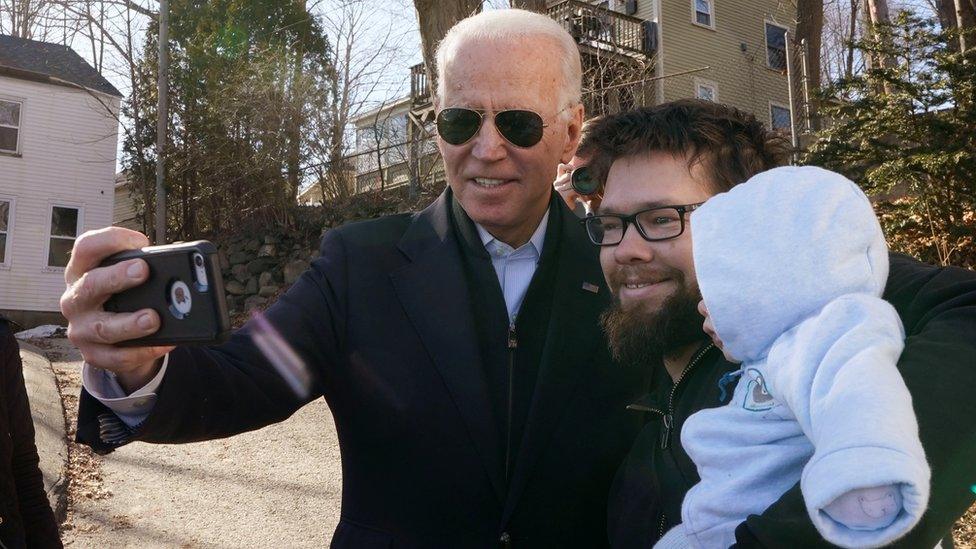
- Published9 April 2019